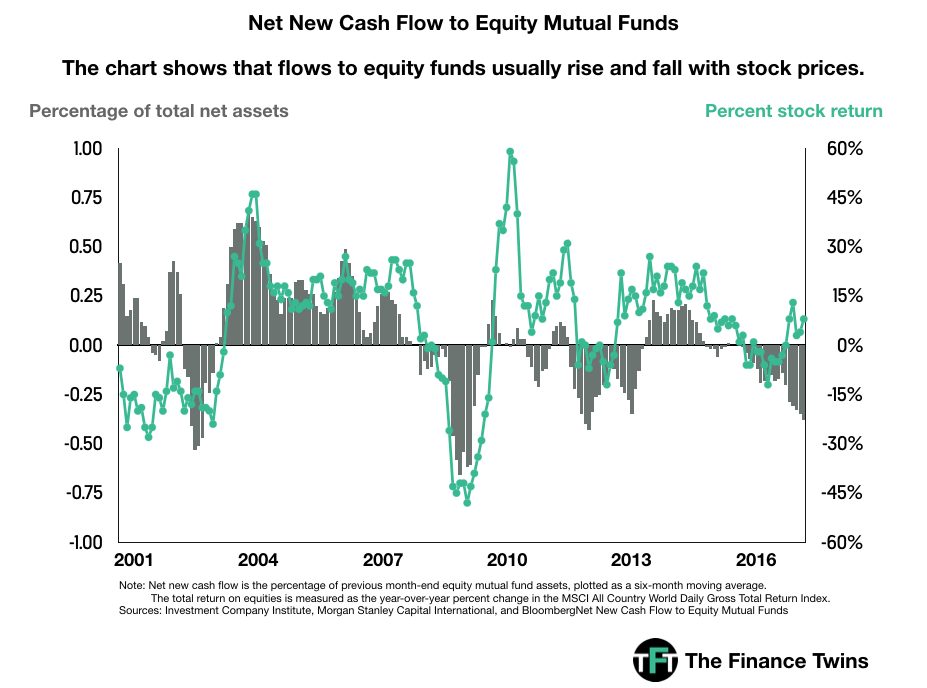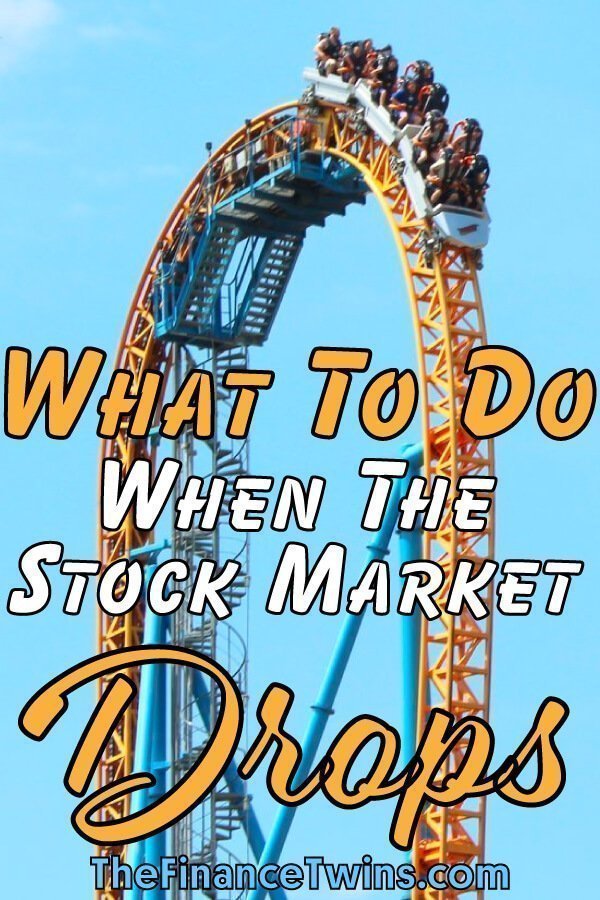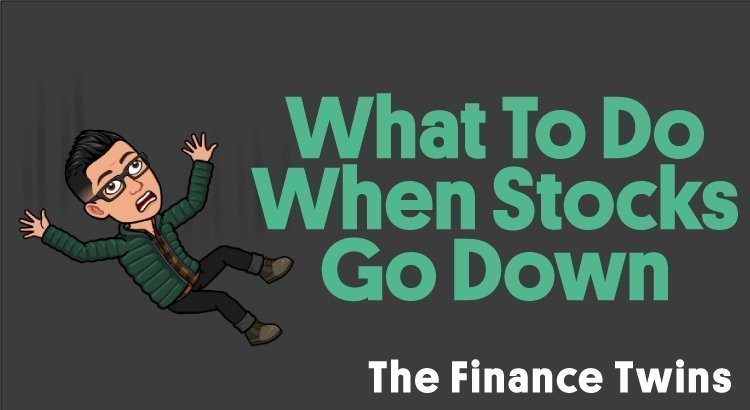If you’re wondering what to do when stocks go down you are not alone. This is a questions we have started to get asked more and more.
The stock market has been dropping and everyone is afraid the incredible market performance is going to slow down, and their 401Ks will lose a lot of value. So what should you do with your investments when stocks go down?
The short is answer is: NOTHING. Don’t change a thing when the stock market drops and the prices of your stocks go down.
The problem with doing nothing is that it’s hard. It goes against our natural instinct and desire to be proactive so that we aren’t the last to move. “Buy high and sell low” is the mantra of investing, right?
Everyone wants to react when they see their investments lose value when the stock market drops. On the other hand, they want to invest more when the stock market is shooting up. The problem here is that it’s impossible to accurately time the market consistently. Don’t be fooled by randomness.
The research shows that this emotional desire to try to time the market by trying to buy low and sell high actually hurts investors. According to renowned Princeton Economist and CIO of Wealthfront, the “behavior gap” between the S&P 500 and average investor returns may be as large at 5% annually over a 20 year period.
What the data shows is that most investors will follow recent returns, so when the stock market is going up more money flows into stocks, but when the stock market drops money will flow out of the market. Be reacting to performance, investors are actually selling low and buying high. The opposite of what they are trying to do.
The chart below paints the picture for you. The grey bars show the money coming in and out of equity funds, while the green line shows historical stock returns. Sure enough, there is a high correlation between the two.

Won’t I be protecting my investments by selling when they are high before their value drops?
The problem with this train of thought is that no one knows when a stock has hit rock bottom or has truly peaked. If you knew exactly when to buy or sell, you’d be already be a billionaire and would be in a private jet on the way to paradise right now. At least that’s what we’d be doing!
In an article by Hoffman et al, it is reported that investor risk tolerance decreased during the worst months of the 2008 recession. This highlights the emotional reactions taken by investors and the importance of sticking to your investing strategy. If you felt confident investing 90% of your 401k or Roth IRA in stocks and 10% in bonds when the market was strong, you should stick to your plan when the stock market drops. If you panic and sell, you will only hurt your investments more.
So if my portfolio is losing most of its value, I should sit back and watch it drop without changing anything?
For the long-term investor this is the perfect strategy. You want to minimize your emotional impact on your returns. If you are investing for the long term (which is what you should be doing), know that your portfolio will recover with the markets. If you sell your investments, you will not have as much in the stock market when the prices pick up and you’ll be kicking yourself!
According to DALBAR’s 2015 report, the average mutual fund investor was outperformed by the S&P 500 by over 3% in 2015! But how can you be outperformed by the S&P 500 when you invest in a total stock market index fund that tracks the S&P 500? By buying and selling throughout the year in hopes of timing the market. Buying and selling based on what the market is doing prevents you from fully capturing the total market return.
When should I invest? Should I wait to invest my money when stocks go down or we go into a recession?
Unless you have a crystal ball, it’s impossible to know if the stock market will go up or down. For this reason, the best advice is to continue to invest regularly throughout the year. Whether the stock market is going up or down, just continue to follow your investment plan and stick to it.
We don’t allow the stock market’s performance to influence our decisions. We have read the research papers. It’s a losing strategy. Pick investments guaranteed to give you market returns (read our post on total stock market index funds), and buy regularly regardless of what the stock market is doing. This along with appropriate asset allocation ensures that your nest egg will be waiting for you when you retire. Now you know what to do when the stock market drops, or doesn’t drop!
Sources:
Hoffmann, A. O., Post, T., & Pennings, J. M. (2013). Individual investor perceptions and behavior during the financial crisis. Journal of Banking & Finance, 37(1), 60-74.
https://dof.princeton.edu/about/clerk-faculty/emeritus/burton-gordon-malkiel
Dalbar, Inc. Quantitative Analysis of Investor Behavior, 2015. Additional commentary on what to do when the stock market drops.

